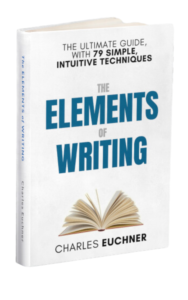Never in our lifetimes have we faced a challenge like the coronavirus. Coming at a time of intense division and mistrust, we must volunteer to give up our way of life in order to save our way of life. We must sacrifice not just for the people we love but for the ones we don’t.
 How will we do? No one knows. In America, we got off to a dreadful start. We delayed action, at all levels. Because of widespread skepticism of facts, we have ignored evidence and science-based strategies. Because we have become addicted to trivial things — we are “amusing ourselves to death,” in the words of the late Neil Postman — we have struggled to mobilize against our greatest threat.
How will we do? No one knows. In America, we got off to a dreadful start. We delayed action, at all levels. Because of widespread skepticism of facts, we have ignored evidence and science-based strategies. Because we have become addicted to trivial things — we are “amusing ourselves to death,” in the words of the late Neil Postman — we have struggled to mobilize against our greatest threat.
How are we, as writers, to think about the coronavirus pandemic? What should we do?
Let’s start by noting that the current crisis is one hell of a story. It makes Jaws look like a game of Bingo at an old folks home.
As writers, it’s our duty to use our skills to understand the magnitude of the story. Events move so quickly — so far away and often so invisible — that we risk losing memory of this experience unless we make a point of writing it down. Right away.
Record your own changing moods. Note the changes in your neighborhood. Check in with family and friends — not just the current roster, but people you have lost track of. Make sure they are OK and share your experiences and hope and fears. Take some videos for you to consider later.
Avoid getting sucked into the cyber version of reality. Social media can offer great glimpses of everyday reality. But it can also pull us into spirals of anxiety. We need our sanity to survive. People make their biggest mistakes when stressed.
Think like a storyteller. Think about the passions and throughlines of the people you know and the people you read about. What secrets lurk beneath the surface? What heroic powers await a call to action? What barriers will get in the way?
I recently interviewed Will Storr, the author of a brilliant new book called The Science of Storytelling. Storr, a great teacher as well as nonfiction storyteller, explores narrative by way of the recent research on neuroscience. I will post the Q&A on the website soon.
Storr offers the simplest and best definition of plot I have ever read: “The job of the plot is to plot against the protagonist.” Plot is not just a series of events that force the hero to act and change; plot is a conspiracy against the hero. Brilliant.
So what are the elements of modern life plotting against us during this crazy, unnerving pandemic? If we understand that question, we will not only get a great story. We will also get powerful insights into our jobs as citizens of the world.
In dark times, I think of Viktor Frankl, the neurologist and psychiatrist who survived the sadism of the Holocaust.
To survive, Frankl taught, we need to find a way to pause and not just react. “Between stimulus and response there is a space,” he wrote in Man’s Search for Meaning. “In that space is our power to choose our response. In our response lies our growth and our freedom.”
Meaning requires action–conscious action. But to act well, we need to think first. We need to avoid being reactive. That pause will enable us to assume full responsibility. Which brings us to another great insight from Frankl.
“Ultimately,” Frankl writes, “man should not ask what the meaning of his life is, but rather must recognize that it is he who is asked. In a word, each man is questioned by life; and he can only answer to life by answering for his own life; to life he can only respond by being responsible.” To act, you must the willing to accept responsibility for your own life.
What if other people do not follow the same caring ethic? All the more reason to do the right thing. We have a better chance if we understand both.
There, dear reader, lies the essence of storytelling … and the challenges we face together, right now.


